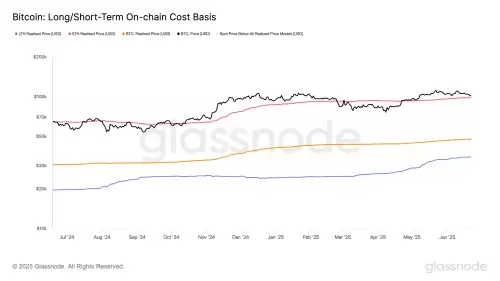 |
|
 |
|
 |
|
 |
|
 |
|
 |
|
 |
|
 |
|
 |
|
 |
|
 |
|
 |
|
 |
|
 |
|
 |
|
Cryptocurrency News Articles
Cointelegraph Under Fire: Exploits, Phishing, and the Crypto Media Minefield
Jun 23, 2025 at 01:28 pm
Cointelegraph and CoinMarketCap faced front-end exploits, turning trusted crypto news sites into vectors for wallet drainers. A wake-up call for crypto security.

Cointelegraph Under Fire: Exploits, Phishing, and the Crypto Media Minefield
Hold onto your hats, crypto enthusiasts! It's been a wild ride with Cointelegraph and CoinMarketCap getting hit by front-end exploits, turning trusted news sites into unwitting accomplices in wallet draining schemes. Let's dive into the chaos and see what lessons we can learn.
The Cointelegraph Breach: A Phishing Pop-Up Nightmare
Recently, Cointelegraph confirmed that its website was compromised by a front-end exploit. Attackers injected a malicious pop-up claiming to offer “CoinTelegraph ICO Airdrops” and “CTG tokens.” The hook? Connect your crypto wallet for a sweet $5,500 worth of tokens. Of course, it was all a big fat lie.
Cointelegraph swiftly warned users: “Do not click on these pop-ups, connect your wallets, or enter any personal information.” They were, thankfully, on the case, working to fix the issue.
Déjà Vu: CoinMarketCap's Similar Scare
Just two days prior, CoinMarketCap faced a nearly identical exploit. Attackers embedded similar code to serve wallet phishing prompts. These attacks relied on hijacking trusted platforms, turning news and data sites into vectors for wallet drainers. Sneaky, right?
How the Hackers Did It
CoinMarketCap’s breach involved exploiting a vulnerability in their front-end system. Hackers used a seemingly harmless doodle image to inject malicious code that triggered fake wallet verification pop-ups. Coinspect Security pinpointed the attack vector as the platform’s rotating “doodles” feature, allowing attackers to embed the malicious code without altering the site’s core infrastructure.
The pop-up was live briefly before CoinMarketCap’s team took it down. They've since implemented “comprehensive measures” to isolate and mitigate the issue. The big question remains: how many users were affected, and were any wallets compromised?
Verified Accounts, Compromised Trust: The Bigger Picture
This isn't just about Cointelegraph and CoinMarketCap. There's a surge in social media hacks targeting the crypto community. Verified accounts on X, belonging to crypto projects, influencers, and even politicians, have been hijacked to spread scams. Bitget, a crypto exchange, reports that hackers are using deceptive methods that are harder to detect.
One Bitget employee fell victim to a scammer posing as a potential business partner. The scammer shared files disguised as project demo tools, which installed malware, granting control of the employee’s X account. Classic move, but effective.
Evolving Tactics: How to Stay Safe
These scams are getting sophisticated. Hackers use verified accounts, remove messages to stay hidden, and spoof profiles with alarming accuracy. Bitget recommends precautions like verifying identities through multiple channels and being skeptical of unsolicited offers.
If you suspect a hack, change your passwords immediately, revoke API keys, and report the incident. Knowledge is your strongest defense.
The Takeaway
What's my take? The Cointelegraph and CoinMarketCap exploits highlight the need for robust security measures, even on trusted platforms. Always double-check before connecting your wallet or entering personal information. If something seems too good to be true, it probably is. The fact that trusted crypto news outlets can be compromised underscores the importance of skepticism and vigilance in the crypto space.
Final Thoughts
So, stay frosty, crypto fam! Keep your wits about you, and remember, a healthy dose of paranoia can save you a fortune. After all, in the wild world of crypto, it's better to be safe than sorry!
Disclaimer:info@kdj.com
The information provided is not trading advice. kdj.com does not assume any responsibility for any investments made based on the information provided in this article. Cryptocurrencies are highly volatile and it is highly recommended that you invest with caution after thorough research!
If you believe that the content used on this website infringes your copyright, please contact us immediately (info@kdj.com) and we will delete it promptly.


























































